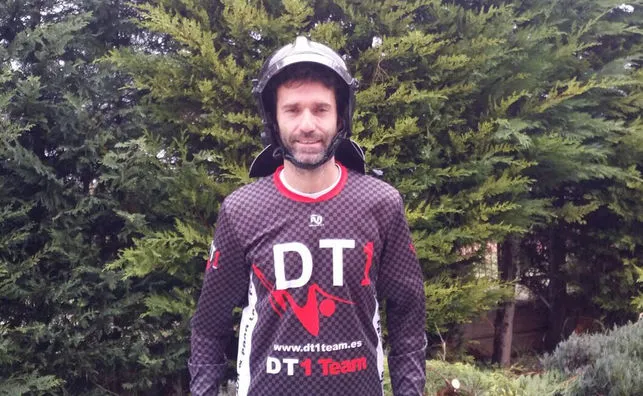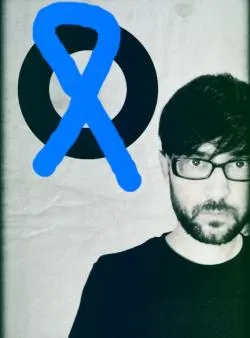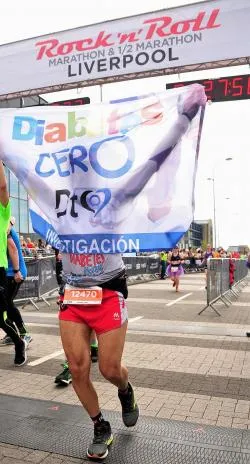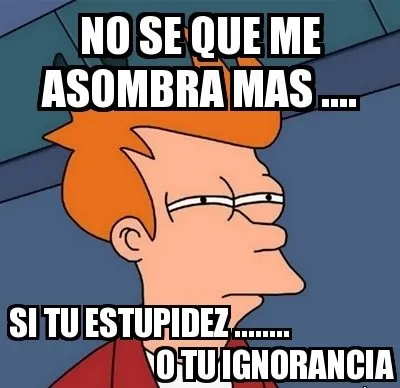"It was the first time in my life that I felt discriminated to being diabetic."Carmen was 27 years old and perfectly remembers the first day class, and the last one, who went to an academy to prepare an opposition to the body of assistants of penitentiary institutions.
"The teacher told us that to access the square there were some medical exceptions and one of them was diabetes. I could not believe it, I work as a social educator, I am a dance in my free time and never the diabetes has prevented me from doing anything"This young woman points out.
Diabetics cannot access administration positions such as Metro blockbusters, prison officials, firefighters or police.The Spanish Federation asks the Government for this pathology to cease to be a general reason for exclusion in the oppositions and each case is evaluated individually.
If diabetes is detected after having approved the oppositions, those affected keep their position."Since I was diagnosed with the disease I take care of me more," explains a diabetic firefighter.
From the Federation of Spanish Diabetics they explain that this pathology is a medical exclusion in some positions of the public administration.This is the case of police, civil guards, firefighters, subway blockbusters in Madrid, prison or military officials."They cannot sit or take the exam. For that requirement, six million people are discriminated against, the number of diabetics in our country," says the president of the organization, Andoni Lorenzo.In some cases they are orders published in the BOE, as in the case of the National Police.But it also occurs in autonomous communities and municipalities when oppositions are convened.For example, they are excluded in the Mossos d'Esquadra exam.
Diabetes occurs when the body cannot generate enough insulin or cannot use it effectively, this hormone acts as a key that allows cells to absorb glucose and use it as energy.
"Each diabetic is a case, we are not all the same," says Daniel Villar, a firefighter who has been working in Logroño for 15 years.He was diagnosed with diabetes four years ago, when he was already within the fire extinguishing body."Now I am better than before: I take care of my diet, not as fast food or industrial pastries."He was discharged during the months in which this pathology made an appearance, but ensures that once treated he has had no problem.
"The experience has helped me to calibrate physical wear. You have to win the game to hypoglycemia. In long and demanding outputs I usually take carbohydrates of carbohydrates," says this athlete who in his free time is trained to run tests50 kilometers in the mountain.
Daniel Villar, firefighter and diabetic
The Federation considers that these types of cases demonstrate that they can occupy the positions that do not allow access to diagnosed diabetics.In addition, they emphasize that if a patient takes care of and controls his insulin he can lead a life similar to that of a walking citizen.That is why they defend an alternative model by which this pathology ceases to be "general reason for exclusion" and the cases are valued individually."We do not understand that we cannot be prison officials and yes neurosurgeon," Lorenzo continues.
"It is an exclusion that has always been there. In its favor I have to say that 50 years ago it was a complex pathology," adds the president of the federation that is critical because this criterion has not been reviewed in recent decades.For example, in the case of oppositions to the National Police Corps, the regulations dating from 1988. Like this pathology, liver cirrhosis, complete deafness, epilepsy or schizophrenia are also exclusive.
According to theCoordinator of the Diabetes Mellitus Working Group of the Spanish Society of Endocrinology, Rebeca Reyes, "each case should be valued individually" since "the tools to control diabetes have improved.""Since the diagnosis of this pathology in a public employee does not imply the decline in their position, it does not seem logical that this disease does prevent access to public function," concludes Reyes.
"Diabetes is not a disability"
Carmen initiated a request for signatures at Change.org for the Ministry of Health to review this criterion, since she did not want to deal with the economic disbursement of a judicial process.For his part, Alan (fictional name) decided to take his case to the courts in 2012 when he was excluded from the selection process for head of lobby of the Madrid Metro for having diabetes.
Three years later, justice has proved him right.The Superior Court of Justice of Madrid has forced this public company to hire the young man, since the magistrates argue that diabetes "does not have the legal consideration of disability" and, therefore, that criterion of exclusion "lacks any justification"
"With good education, job stability is maintained"
The spokesman of the Federation Ta Mpoco considers that, in itself, it is "an disabled pathology.""A proper diabetological education and correct treatment will allow the diabetic worker to maintain their work activity, notwithstanding that periods of temporary work disability in case of acute complications or metabolic decompensations," they point out in the article coordinated by Dr. Mª Teofila Vicente- Herrero and in which several endocrine and professionals specialized in Occupational Medicine participated, published in the specialized magazine Advances in Diabetology.
In this article they explain that "high levels of blood glucose can cause hunger, thirst, headache, blurred vision, frequently urinating, dry skin and itching and, if no treatment is received for some time, diabetic ketoacidosis,that can cause difficulties to breathe, coma, and even death. "
NLP against this criterion
At the end of 2015, the claim of these diabetics came to Congress, the PSOE presented a non -law proposition (NLP) in the Health and Social Services Commission for which the Government urged that this pathology ceased to be "General reason for exclusion"With the dissolution of the Congress and the call of elections the NLP expired and was not discussed."As soon as there is a new executive we return to the burden, we want article 14 of the Constitution to be a reality and not be discriminated against by being diabetic," concludes the president.










